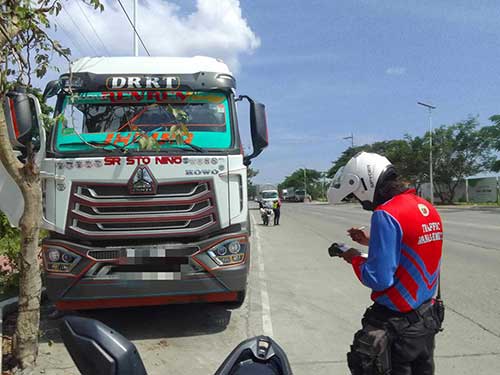
By Rjay Zuriaga Castor
The Iloilo City Transportation and Traffic Management Office (TTMO) is advocating for the procurement of body-worn cameras to enhance transparency and accountability during the enforcement of the city’s traffic laws and regulations.
TTMO head Uldarico Garbanzos said the cameras would ensure that operations are recorded, providing valuable evidence in case of formal complaints.
“This is the future and way forward for TTMO because we have ongoing road-clearing operations like clamping, traffic enforcement, and other apprehensions,” he said.
“There are instances when we cannot perfectly execute operations, and this will serve as evidentiary support if formal complaints arise,” he added.
A body-worn camera is an electronic device designed for law enforcement units to create, generate, send, receive, store, display, and process audiovisual recordings that may be worn during law enforcement activities.
Garbanzos said TTMO has included the request for these camera systems in its annual budgetary requirements.
He added that once the body-worn cameras become part of their operations, additional policies and procedures would be incorporated into existing traffic regulation ordinances, particularly for storing and using files in court presentations.
According to Garbanzos, the body-worn cameras will initially be used by more than 300 personnel in TTMO’s enforcement and clearing teams.
“If we expand this, it would be ideal for every supervisor and areas with high numbers of apprehensions to have these cameras,” he noted.
Garbanzos expressed hope that their request would receive priority attention from the city government, emphasizing that the cameras would help protect TTMO’s reputation and deter illegal activities by personnel.
While some personnel in the Molo district have purchased their own body-worn cameras, Garbanzos reminded them that these devices are for personal use and not for work-related postings.
“Every time there is an apprehension, our lesson learned is that the driver takes a video, and our personnel also records, with the reminder that it is not for posting,” he stressed.
Garbanzos further encouraged personnel to document incidents, especially during heated arguments with drivers, to provide clear evidence of events.



















